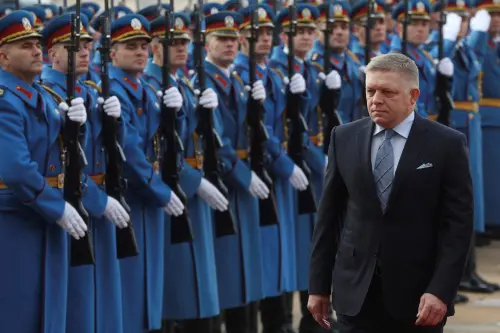Introduction
Slovak Prime Minister Robert Fico is proposing a constitutional amendment that aims to prioritize national identity over progressive values, raising concerns among critics about potential conflicts with European Union (EU) laws and international treaties.Context
Fico’s recent move reflects his growing anti-liberal rhetoric, which is coupled with a pro-Russian and pro-Hungarian international stance. He has openly advocated for closer relationships with Russia and China while opposing sanctions on Moscow and criticizing the EU’s military support for Ukraine.Developments
The proposed constitutional amendment defines gender strictly as male and female, mandates that school curriculums align with these views, and imposes stricter adoption regulations. According to the amendment, "The Slovak Republic maintains sovereignty above all in issues of national identity," particularly concerning cultural and ethical matters.Despite assurances from Fico's government that the amendment complies with EU law, opposition lawmakers and legal experts, including five former constitutional court judges, argue that it may undermine Slovakia's commitments to European norms. They express concerns that the amendment's vague language could lead to severe interpretations and legal uncertainties, ultimately weakening the enforcement of international law in Slovakia.
Fico's coalition, which holds a slim majority supported by independents, has garnered backing from some opposition forces, notably the conservative Christian Democrats. This could provide the necessary votes for the amendment to pass in the upcoming parliamentary session.
Amnesty International has condemned the proposal, stating that it represents a deliberate effort to detach Slovakia from international human rights safeguards, thereby threatening vulnerable populations, including children, women, and the economically disadvantaged who may suffer discrimination based on age or gender identity.
Additionally, Fico's administration has taken steps to control dissent, alleging that liberal protests amount to coup attempts, intensifying regulations on non-governmental organizations, tightening control over public broadcasters, and labeling independent media as agents of foreign influence.
